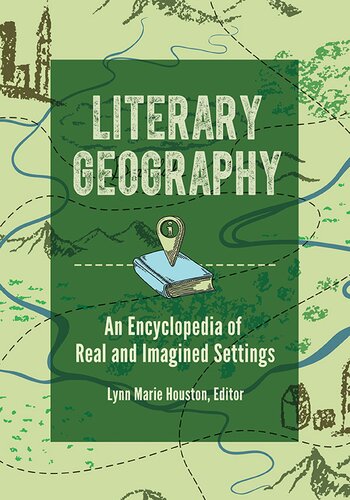

Most ebook files are in PDF format, so you can easily read them using various software such as Foxit Reader or directly on the Google Chrome browser.
Some ebook files are released by publishers in other formats such as .awz, .mobi, .epub, .fb2, etc. You may need to install specific software to read these formats on mobile/PC, such as Calibre.
Please read the tutorial at this link: https://ebookbell.com/faq
We offer FREE conversion to the popular formats you request; however, this may take some time. Therefore, right after payment, please email us, and we will try to provide the service as quickly as possible.
For some exceptional file formats or broken links (if any), please refrain from opening any disputes. Instead, email us first, and we will try to assist within a maximum of 6 hours.
EbookBell Team

4.4
62 reviewsLiterary Geography: An Encyclopedia of Real and Imagined Settings is an authoritative guide for students, teachers, and avid readers who seek to understand the importance of setting in interpreting works of literature, including poetry. By examining how authors and poets shaped their literary landscapes in such works as The Great Gatsby and Nineteen Eighty-Four, readers will discover historical, political, and cultural context hidden within the words of their favorite reads.
The alphabetically arranged entries provide easy access to analysis of some of the most well-known and frequently assigned pieces of literature and poetry. Entries begin with a brief introduction to the featured piece of literature and then answer the questions: "How is literary landscape used to shape the story?"; "How is the literary landscape imbued with the geographical, political, cultural, and historical context of the author's contemporary world, whether purposeful or not?"
Pop-up boxes provide quotes about literary landscapes throughout the book, and an appendix takes a brief look at the places writers congregated and that inspired them. A comprehensive scholarly bibliography of secondary sources pertaining to mapping, physical and cultural geography, ecocriticism, and the role of nature in literature rounds out the work.